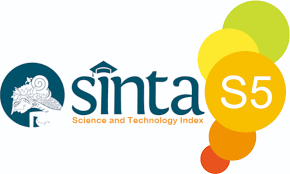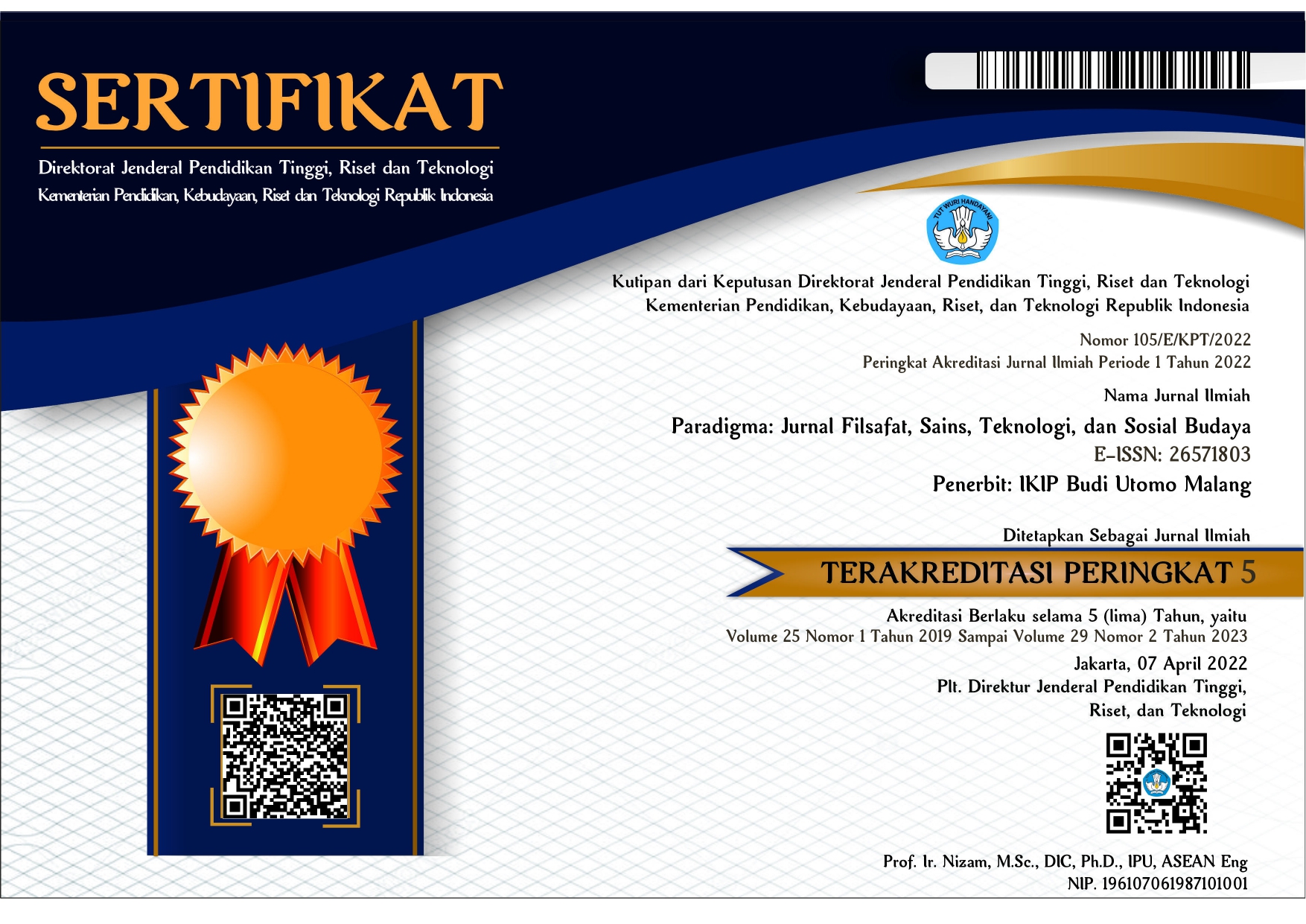Pengembangan Perangkat Dan Keefektifan Pembelajaran Kooperatif Tipe Think-Pair-Share Dengan Pendekatan Problem Posing Pada MK Pendidikan Pancasila Prodi Pendidikan Bahasa dan Sastra Indonesia Universitas Insan Budi Utomo Malang
Abstract
This research aims to produce think-pair-share type cooperative learning tools with a problem posing approach in Pancasila courses and describe the effectiveness of think-pair-share type cooperative learning with a problem posing approach in Pancasila Education courses. This research was carried out in two stages, namely the preparation stage which aimed to develop tools following the modified 4-D design model of Thiagarajan (1974) followed by the implementation stage of classroom learning. This research uses two classes, where both classes have the same abilities and characters. The first class is used as a device trial class and the second class is used to analyze student learning outcomes and see the effectiveness of student learning using the devices that have been developed. So this research is classified as quantitative descriptive research. Data from research on student activity trial classes meet the criteria for effectiveness. The student response questionnaire showed a positive response, the lecturer's ability to manage learning was classified as good, the validity of the question items were categorized as valid, reliable and sensitive and classical learning completeness was met, more than 75% of students completed the study. So the device can be used in descriptive classes. Student activities during learning activities in the descriptive experimental class are classified as effective, the lecturer's ability to manage learning is good, the results of the student response questionnaire show that there are more positive responses than negative responses, student learning completeness is fulfilled, namely 83.3% of students have completed their learning. Based on the results of data analysis, it can be concluded that the tools developed are in the good category and cooperative learning of the thik-pair-share type with a problem posing approach is effective for the Pancasila Education subject of the Indonesian Language and Literature Education Study Program and classical learning completeness has been fulfilled.








.jpg)



